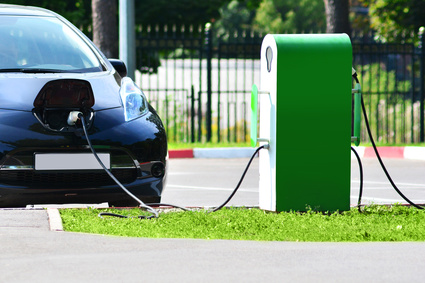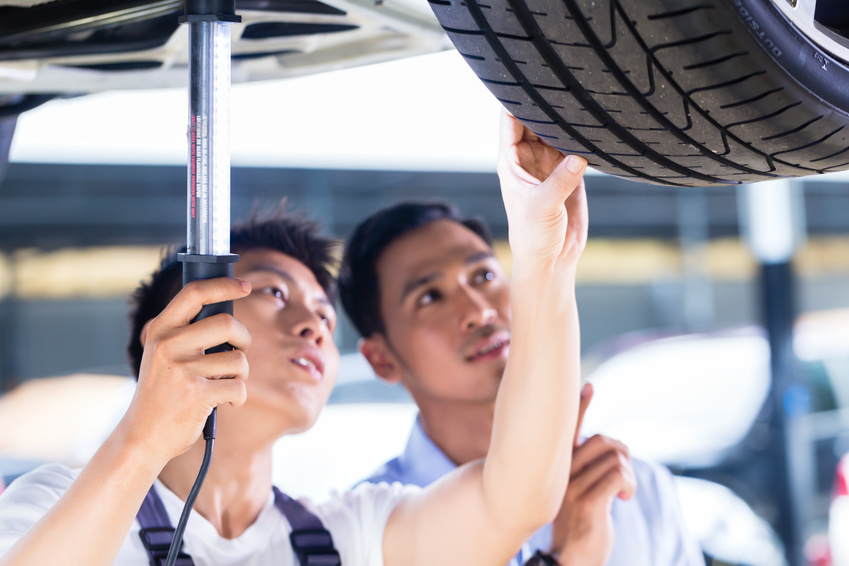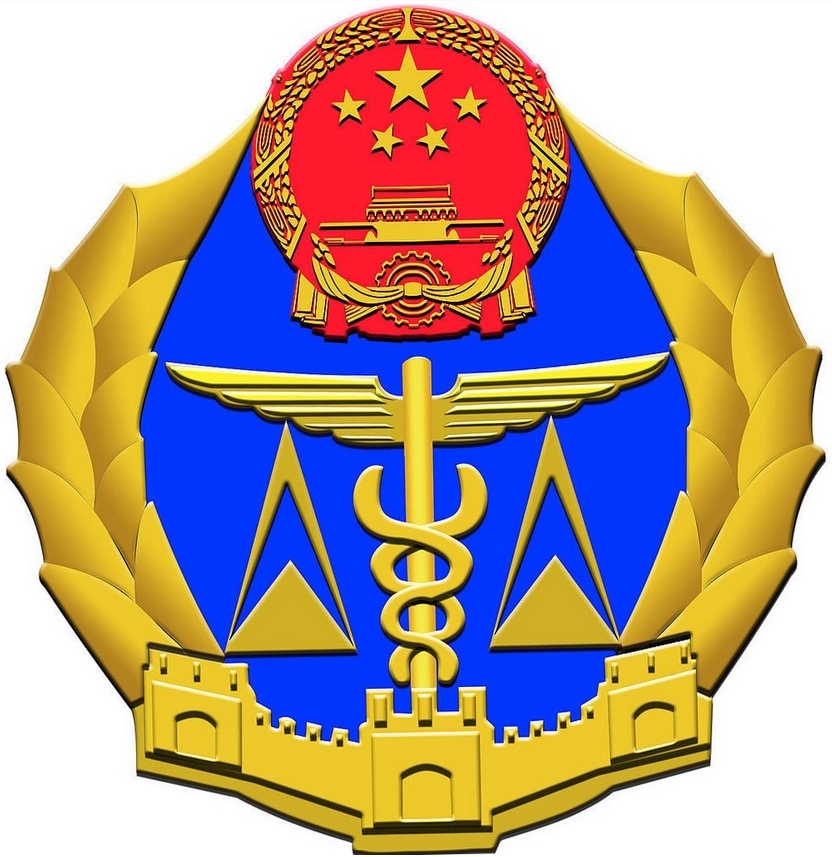CNCA Issues Implementation Rules for CCC Certification of Motorcycle Helmets and Electric Blankets
The “Certification and Accreditation Administration” (CNCA) has issued new implementation rules in October. Starting from November 1st 2017, motorcycle helmets and electric blankets are subject to CCC certification.

The Implementation rules consist of guidelines for the certification of certain product categories. The new regulations for motorcycle helmets are included in CNCA-C11-15:2017, electric blankets however are included in CNCA-C07-01:2017.
Product tests are a mandatory part of the CCC certification. The regulation for these tests are specified in the GB-standards, the Chinese national regulations. GB 811-2010 regulates the basic structure of motorcycle helmets, technical requirements, test procedures and rules as well as labels. GB 4706.8-2008 covers not only electric blankets but also a variety of similar household appliances with heating elements.
If you have questions regarding the new regulations and their impact on your products, please do not hesitate to contact us. We offer full English translations of relevant standards and implementation rules, CCC checks for your products as well as support in answering questions regarding the planned CCC certification.
For more information about CCC certification in general, the process, and the associated costs, please visit our website and our News Section where you will find current updates twice a week.
Please do not hesitate to contact us for further details and consultation. You can contact us via e-mail, or call us (UK: +44 2071931135, Rest of Europe: +49 69 2713769150, US: +1 773 654-2673).
You can also check out our free CCC-Brochure, which can be downloaded right here as a PDF file or you consult our book (in English) “A Brief Guide to CCC: China Compulsory Certification”, which can be found directly here on Amazon.
Siemens is Investing in China’s Future
Siemens is preparing to open a new research center in Beijing. In partnership with the Center of Knowledge interchange at Tsinghua University, the new Research and development center is primed to study and develop mechatronic systems, human to robot interactions and the collaboration of the use of AI in robotic controllers.
Whilst details remain scarce, Siemens is planning on bringing in and attracting experts from across the globe and plans on working closely with the Chinese administrations and various research institutions.
According to a forecast by the industry by the International Federation of Robotics, this new deal with Siemens will help in catapulting China’s expected global market share of world robotic innovation to 40% by 2019.
Siemens aim, along with the Chinese authorities, is to find ‘digital city’ solutions that combat urban challenges like, congestion, energy use and pollution.
Notably, this new deal with Siemens will also help Beijing in realizing its ‘Made in China 2025’ framework.

For more information on how CCC certification may affect your company, or for more information about CCC certification in general, the process and the associated costs, please visit our website and our News Section where you will find current updates twice a week.
Please do not hesitate to contact us for further details and consultation. You can contact us via Email, or call us (UK: +44 2071931135, Rest of Europe: +49 69 2713769150, US: +1 773 654-2673).
You can also check out our free CCC-Brochure, which can be downloaded right here as a PDF file, or you can consult our English textbook “A Brief Guide to CCC: China Compulsory Certification”, which can be found directly here on Amazon.
China aims to ban petrol and diesel cars
According to Xin Guobin, a senior official in the Chinese industry department, Beijing is formulating a timetable to ban the production and sale of petrol and diesel-powered vehicles.
Although a specific date hasn’t been confirmed, countries like the UK and France have tentatively set a date for a ban in 2040.
As part of this push for e-vehicle technology, Beijing has actively encouraged e-vehicle innovation and seeking foreign partnership with European and North American auto giants to realize their goals.
Based on figures released by industry analysts, JATO, China already has the world’s largest car market with an impressive 25.5 million vehicles sold last year alone. Coupled with their rapidly developing e-vehicle infrastructure and the fact that China already has the largest community of market buyers for electric and hybrid cars, it’s looking more and more likely that their bold aims may soon be a reality.

Whilst China’s desire to become the world leader in e-vehicle development might initially be seen as a primarily economic move, China also has other serious motives.
China also wants to lead the global e-vehicle race as a means of helping to combat its major smog problem as well as help in clearing up congestion.
For more information on how CCC certification may affect your company, or for more information about CCC certification in general, the process and the associated costs, please visit our website and our News Section where you will find current updates twice a week.
Please do not hesitate to contact us for further details and consultation. You can contact us via Email, or call us (UK: +44 2071931135, Rest of Europe: +49 69 2713769150, US: +1 773 654-2673).
You can also check out our free CCC-Brochure, which can be downloaded right here as a PDF file, or you can consult our English textbook “A Brief Guide to CCC: China Compulsory Certification”, which can be found directly here on Amazon.
China’s Electric Car Push Lures Global Auto Giants Despite Risks
German auto giants, including Volkswagen and Daimler are pushing for a rapid electric car expansion. This major jump in production will utilize the growing Chinese manufacturing market.

China is the perfect market for electric cars. Not only has China pledged to eventually ban gasoline and diesel powered fueled vehicles in the future. They are also heavily investing in electric car technology and infrastructure.
The Chinese administration is doing everything to lure in big auto giants. There are several reasons for this. First and foremost, it will help in positioning China as a major manufacturing player in electric vehicle technology.
Secondly, the Chinese government is producing laws and placing provision on these foreign automakers to work in tandem with local Chinese companies. Meaning that the Chinese auto giants will gain new insight and technology to bolster their own home-grown manufacturing.
Admittedly, some foreign auto giants have expressed concern about sharing technology, though the pay-off for having access to the commercial Chinese auto market, the largest auto-market in the world, is highly important for boosting their own sales.
Notably, Hubertus Troska, the chairman and chief executive of greater China at Daimler said, “We will increase it even further — we’re honestly not very concerned about the tech transfer.”
This I.P. sharing isn’t just crucial in terms of the electric car market. As per the China 2025 roadmap, China aims at becoming a major player in several areas, including (but not limited to) Robotics, AI and emerging technologies more generally. And whilst there remains some controversy as to the dangers of sharing tech secrets in the long-term, many companies are looking to China to super-charge their short term gains.
For more information about CCC certification in general, the process and the associated costs, please visit our website and our News Section where you will find current updates twice a week.
Please do not hesitate to contact us for further details and consultation. You can contact us via e-mail, or call us (UK: +44 2071931135, Rest of Europe: +49 69 2713769150, US: +1 773 654-2673).
You can also check out our free CCC-Brochure, which can be downloaded right here as a PDF file or you consult our book (in English) “A Brief Guide to CCC: China Compulsory Certification”, which can be found directly here on Amazon.
Quality control by new information platform in China

The Shanghai Municipal Bureau of Quality and Technical Supervision released an information platform to improve quality control. The platform is part of the “Quality Inspection Sword” program, which was launched by the AQSIQ this year. Currently quality control departments in Shanghai have access to it.
The information platform is a practical, interactive and powerful quality inspection tool. The platform contains more than 180 laws and regulations related to quality supervision, more than 70 specific administrative law enforcement system and many more. Law enforcement can be handled through this information platform via mobile internet.
Introducing this information platform has improved the capacity and standard of quality control as well as disperse enforcement of law and regulations. Last year the cases have increased by 20%. The next step is to develop a software environment to further improve the supervision.
If you have questions regarding the voluntary CQC certification or would like to go through the process of getting CCC certification for your products, please do not hesitate to call us (UK: +44 2071931135, Rest of Europe: +49 69 271 37 69 150, US: +1 773 654 2673. You can also contact us via email.
For general information about the CCC, the certification process, the related costs, or other GB standards, you can also visit our website. You will find regular updates on the subject of China certifications in our news section.
Detailed information about CCC can also be found in our free brochure “CCC Made Easy“, which you can download here as a PDF file or you consult our English book “A Brief Guide to CCC: China Compulsory Certification”, which can be found directly here on Amazon.
China to Further Promote its National Quality Assurance System

On September 6, 2017 the Central Committee of the Communist Party of China held a training seminar under the leadership of Chinese Prime Minister Li Keqiang. The aim of that meeting was the expansion of state support for the national quality assurance system, increased supervision and control by authorities and the improvement of the quality of Made in China products by continuous development and learning. The meeting was attended by a number of top-ranking leaders of the Party, as well as representatives of Chinese supervisory and certification authorities, such as AQSIQ (General Administration of Quality Supervision, Inspection and Quarantine) and CQC (China Quality Certification Center).
According to Prime Minister Li Keqiang, the strengthening of the national quality assurance and control system also includes the simplification and reform of administrative structures. The regulatory requirements for certain certifications and licensing are also to be simplified. In summary, the Chinese Government intends to increase the quality of Chinese production while ensuring fair production conditions for all Chinese manufacturers. Both the national and the international competitiveness of Chinese manufacturers should be encouraged by this.
In an earlier news article, we reported on the interim report on compliance with quality standards in the first half of 2017 issued by AQSIQ. One of the most important quality assurance certifications in China is the CCC certification.
For more information about CCC certification in general, the process and the associated costs, please visit our website and our News Section where you will find current updates twice a week.
Please do not hesitate to contact us for further details and consultation. You can contact us via e-mail, or call us (UK: +44 2071931135, Rest of Europe: +49 69 2713769150, US: +1 773 654-2673).
You can also check out our free CCC-Brochure, which can be downloaded right here as a PDF file or you consult our book (in English) “A Brief Guide to CCC: China Compulsory Certification”, which can be found directly here on Amazon.



